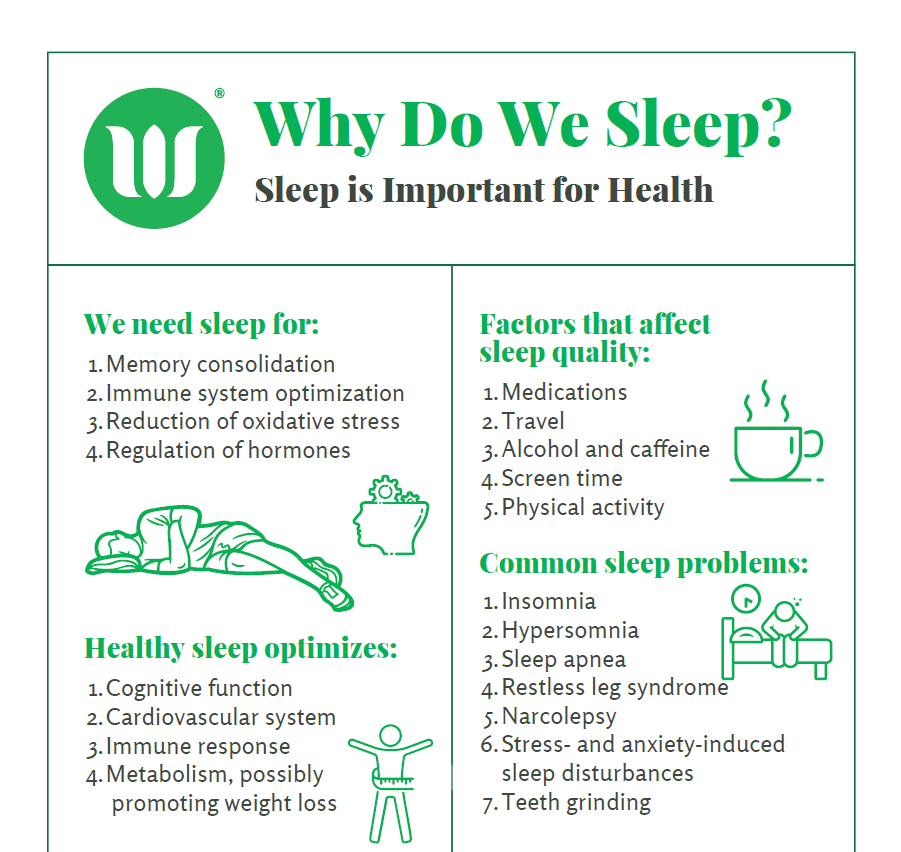Why Do We Sleep?
About this PDF
The question of why we sleep has plagued scientists for decades. Unfortunately, there isn’t one simple answer, however, research suggests a few reasons why adequate sleep is essential for one’s health and well-being.
One prominent reason is its restorative function. As one sleeps, the body engages in critical restorative and regeneration processes which entails the consolidation of memories, the elimination of toxins from the brain, and the restoration of energy levels. It allows the body to replenish resources, repair tissues, and optimize physiological functions, ensuring humans are ready to take on the day during waking hours.
The second reason sleep is essential for an individual’s well-being is its association with cognitive function and emotional regulation. It’s associated with learning and memory consolidation, with various stages facilitating different aspects of memory processing. It is also responsible for the regulation of mood and emotions. Sleep is required to achieve optimal mood states while deprivation has been known to trigger stress.
Additionally, it’s essential in the regulation of hormone production, metabolism, and immune function. Disruptions in sleep patterns have been associated with dysregulation of hormones such as cortisol, insulin, and growth hormones, which can have profound effects on metabolism, appetite, and overall health. Moreover, deprivation can weaken the immune system, making individuals more susceptible to infections and illness.
Benefits of Sleep
The benefits of good sleep – and consequences of poor – extend to nearly every system of the body. However, most Americans do not get the recommended amount each night.
Developing healthy habits can help with important functions including memory consolidation, immune system optimization, reducing oxidative stress, and regulating hormones. Together, these beneficial effects enhance health in the systems of the body including cognitive function, cardiovascular system, immune system, and metabolic health.
Challenges
Getting adequate, healthy sleep can be challenging. Many lifestyle factors can have a negative impact including certain medications, traveling – especially across time zones – consuming alcohol or caffeine before bed, and too much screen time. Conversely, physical activity can be beneficial unless it occurs too soon before bed, which can lead to disturbances.
Common sleep problems in Americans range from trouble falling or staying asleep to breathing disorders. Other issues include restless leg syndrome, teeth grinding, as well as stress- and anxiety-induced disturbances.
Scientific studies have demonstrated the usefulness of several nutrients and herbs to support sleep as well as decrease anxiety and stress through a variety of mechanisms. Whole-food magnesium, vitamin C, and several B vitamins can help improve quality and modulate important molecules involved in sleep including cortisol and tryptophan. Adaptogenic herbs including ashwagandha, schisandra, and kava can help reduce anxiety and also improve sleep quality.




